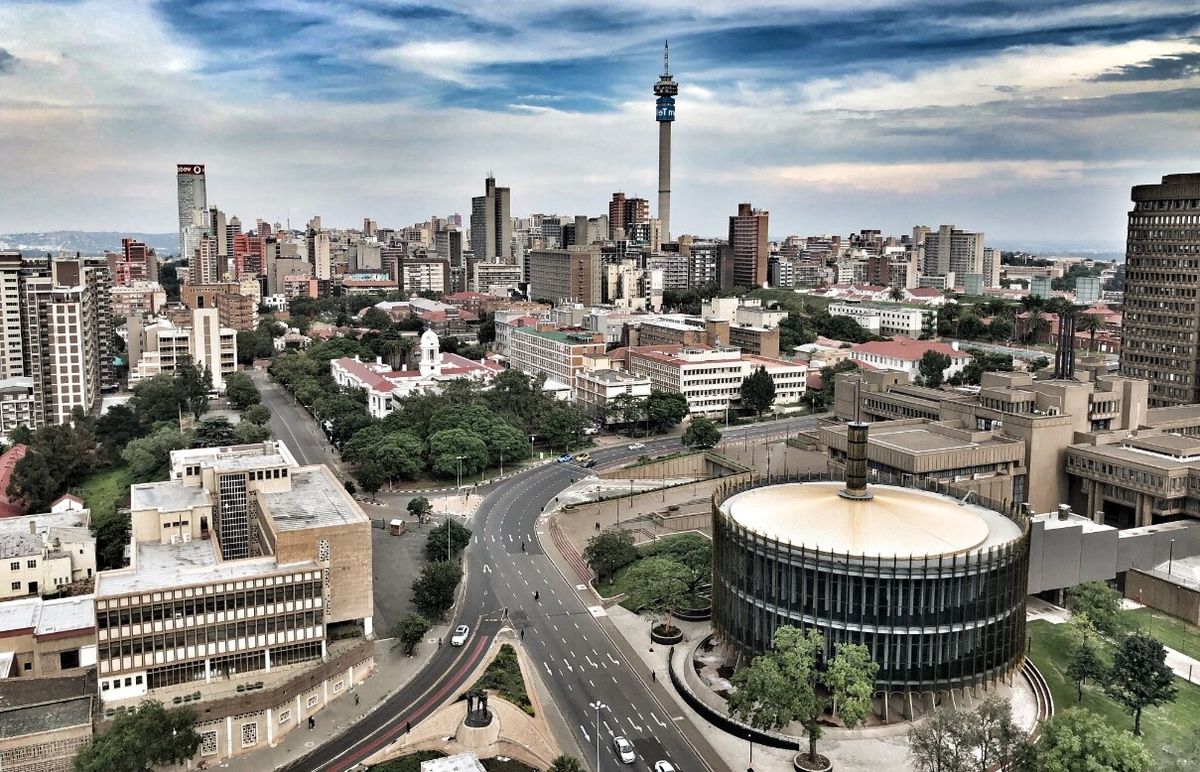
South Africa is a land of contrasts, where modern cities meet wild landscapes. Ever wondered what makes this country so unique? From its rich history to diverse cultures, South Africa offers a tapestry of experiences. Did you know it has 11 official languages? Or that it's home to the world's largest diamond? Whether you're curious about its wildlife, fascinated by its political history, or eager to learn about its vibrant arts scene, there's something here for everyone. Ready to dive into 50 intriguing facts about South Africa? Buckle up, because this journey promises to be as diverse and colorful as the nation itself!
Key Takeaways:
- South Africa's diverse landscapes, including the iconic Table Mountain and Kruger National Park, make it a nature lover's paradise with breathtaking views and abundant wildlife.
- From Nelson Mandela's legacy to the vibrant arts scene and delicious cuisine, South Africa's rich history, culture, and innovation make it a fascinating and dynamic country to explore.
Geography and Nature
South Africa's diverse landscapes and natural beauty are truly captivating. From vast deserts to lush forests, the country offers a variety of stunning scenery.
- South Africa is home to Kruger National Park, one of the largest game reserves in Africa.
- The Drakensberg Mountains are the highest mountain range in Southern Africa, offering breathtaking views and hiking trails.
- Table Mountain in Cape Town is one of the New Seven Wonders of Nature.
- The Kalahari Desert spans across South Africa, Botswana, and Namibia.
- South Africa has three capital cities: Pretoria (executive), Bloemfontein (judicial), and Cape Town (legislative).
History and Heritage
South Africa's history is rich and complex, marked by significant events and influential figures.
- The Cradle of Humankind near Johannesburg is a UNESCO World Heritage Site, known for its ancient hominid fossils.
- Nelson Mandela was South Africa's first black president and a key figure in the fight against apartheid.
- The Apartheid Museum in Johannesburg offers a deep dive into the country's history of racial segregation.
- Robben Island, where Nelson Mandela was imprisoned for 18 years, is now a museum and World Heritage Site.
- The Great Trek was a significant migration of Dutch-speaking settlers in the 1830s and 1840s.
Culture and Traditions
South Africa's cultural diversity is reflected in its traditions, languages, and festivals.
- South Africa has 11 official languages, including Zulu, Xhosa, and Afrikaans.
- The Rainbow Nation nickname reflects the country's multiculturalism.
- Heritage Day on September 24 celebrates the diverse cultures and traditions of South Africa.
- The Zulu Reed Dance is a traditional ceremony celebrating young women's purity.
- Braai, a South African barbecue, is a popular social event and culinary tradition.
Economy and Industry
South Africa's economy is one of the largest in Africa, driven by various industries.
- The country is the world's largest producer of platinum and chromium.
- Johannesburg is the largest city and the economic hub of South Africa.
- The wine industry in South Africa is renowned globally, with vineyards primarily in the Western Cape.
- Gold mining has been a significant industry since the late 19th century.
- The Port of Durban is the busiest port in Africa.
Wildlife and Conservation
South Africa is known for its incredible wildlife and conservation efforts.
- The Big Five (lion, leopard, rhinoceros, elephant, and Cape buffalo) can be found in South Africa.
- Addo Elephant National Park is home to over 600 elephants.
- The Cape Floral Region is a biodiversity hotspot with thousands of plant species.
- Shark cage diving is a popular activity in Gansbaai, known for its great white sharks.
- The Southern Right Whale migrates to South African waters between June and November.
Sports and Recreation
Sports play a significant role in South African culture, with many popular activities and events.
- Rugby is one of the most popular sports, with the national team known as the Springboks.
- South Africa hosted the 2010 FIFA World Cup, the first time the event was held in Africa.
- Cricket is another major sport, with the national team known as the Proteas.
- The Comrades Marathon is the world's oldest and largest ultramarathon race.
- Surfing is popular along the country's extensive coastline, with Jeffrey's Bay being a famous surf spot.
Food and Cuisine
South African cuisine is a melting pot of flavors and influences from various cultures.
- Biltong is a popular dried meat snack, similar to beef jerky.
- Bobotie is a traditional dish made with spiced minced meat and an egg-based topping.
- Bunny chow is a street food originating from Durban, consisting of hollowed-out bread filled with curry.
- Malva pudding is a sweet, sticky dessert often served with custard.
- Rooibos tea is a caffeine-free herbal tea native to South Africa.
Arts and Entertainment
South Africa has a vibrant arts scene, with contributions to music, literature, and film.
- Miriam Makeba, also known as Mama Africa, was a famous South African singer and civil rights activist.
- The Soweto Gospel Choir has won multiple Grammy Awards.
- District 9, a science fiction film set in Johannesburg, received critical acclaim.
- J.R.R. Tolkien, author of "The Lord of the Rings," was born in Bloemfontein.
- The National Arts Festival in Grahamstown is one of the largest arts festivals in Africa.
Education and Innovation
South Africa has made significant strides in education and innovation, contributing to global advancements.
- The University of Cape Town is one of Africa's leading universities.
- Chris Barnard performed the world's first successful human heart transplant in Cape Town in 1967.
- The Square Kilometre Array (SKA) project, an international effort to build the world's largest radio telescope, is partly located in South Africa.
- Nelson Mandela Metropolitan University is known for its research in renewable energy.
- The Council for Scientific and Industrial Research (CSIR) is a leading scientific research organization in Africa.
Politics and Governance
South Africa's political landscape has evolved significantly over the years, with a focus on democracy and human rights.
- The African National Congress (ANC) is the ruling party, having led the country since the end of apartheid.
- Desmond Tutu, an Anglican bishop, was a prominent anti-apartheid activist and Nobel Peace Prize laureate.
- The Truth and Reconciliation Commission was established to address the atrocities committed during apartheid.
- Thabo Mbeki succeeded Nelson Mandela as president, serving from 1999 to 2008.
- The Constitutional Court is the highest court in South Africa, ensuring the protection of human rights and the rule of law.
South Africa's Rich Tapestry
South Africa's diverse culture, stunning landscapes, and rich history make it a fascinating place. From the iconic Table Mountain to the vibrant city life in Johannesburg, there's something for everyone. The country's wildlife, including the Big Five, offers unforgettable experiences for nature lovers. South Africa's history, marked by the struggle against apartheid, has shaped its resilient and dynamic society. The nation's cuisine, blending indigenous flavors with influences from around the world, is a treat for food enthusiasts. Whether you're interested in exploring ancient caves or enjoying a safari, South Africa has it all. Its people, known for their warmth and hospitality, add to the country's charm. With so much to offer, South Africa remains a top destination for travelers seeking adventure, culture, and natural beauty. Dive into its wonders and discover what makes this country truly unique.
Frequently Asked Questions
Was this page helpful?
Our commitment to delivering trustworthy and engaging content is at the heart of what we do. Each fact on our site is contributed by real users like you, bringing a wealth of diverse insights and information. To ensure the highest standards of accuracy and reliability, our dedicated editors meticulously review each submission. This process guarantees that the facts we share are not only fascinating but also credible. Trust in our commitment to quality and authenticity as you explore and learn with us.


